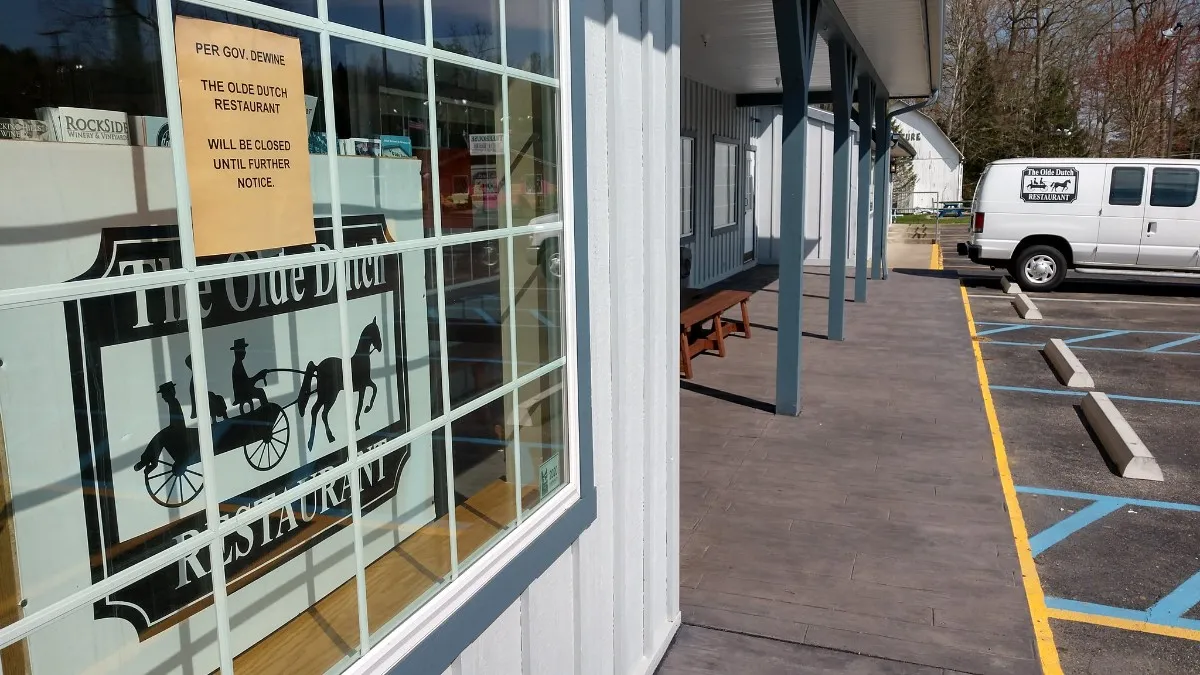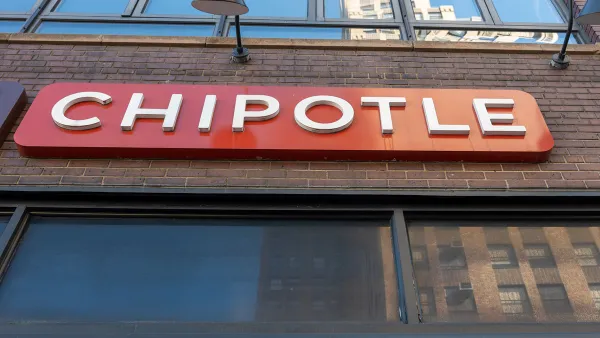Dive Brief:
- As of April 13, over 38% of restaurants said they have closed temporarily or potentially permanently with over 77% of respondents reporting they have seen at least a 50% reduction in sales, according to a survey emailed to Restaurant Dive from the James Beard Foundation and Independent Restaurant Coalition.
- Two-thirds of restaurants say they are uncertain that takeout or delivery will be enough to sustain their businesses until they are able to reopen, according to the survey of 1,400 small and independent owners in April.
- Only one in five owners in cities that have been shut down are very certain or somewhat certain that they will be able to maintain their businesses until normal operations resume.
Dive Insight:
With ongoing stay-at-home orders and mandated closures across most of the country, restaurant sales have only decreased over the last two months. The National Restaurant Association projects March and April revenue losses will approach $100 billion. In March, same-store sales dropped 28.3%, with same-store sales slipping 65% during the last two weeks of the month, according to Black Box Intelligence.
The longer this crisis continues, the risk will only rise for restaurants. Only 15% of restaurants, bars and caterers say they would survive a six-month shutdown, according to a Harvard Business School survey. Many restaurants have also tried to pivot to off-premise only, but realized the sales were not enough to remain open.
“This is a dire situation that we’re in,” Tom Colicchio, co-founder of the Independent Restaurant Coalition and chef and owner of Crafted Hospitality, said during a call with the media on Thursday. “Most restaurateurs that I’ve talked to … don’t believe they’ll survive.”
The Independent Restaurant Coalition, National Restaurant Association and a group of tech CEOs from OpenTable, Nextdoor, Toast and TripAdvisor have all called on Congress to increase funding or revise the Paycheck Protection Program. The IRC is also asking for an extension of the loan, stating that eight weeks isn’t long enough to ensure restaurants stay open and to provide continual employment.
Funding for the program, which provides loans for businesses to bring back furloughed employees in exchange for loan forgiveness, officially ran out on Thursday after two weeks, and has caused a lot of confusion and frustration among independent restaurant owners, many of whom have yet to receive clear answers from their banks and the government about how the program works.
Having additional funding is critical for restaurants to remain open and maintain operations. Nearly 40% said their immediate cash challenges are rent, while 34% said one of the biggest hurdles to reopening is being able to pay vendors, according to the survey.
“We need to fix the PPP [and] the flaws that are within so we can ensure that … we can afford to reopen and rehire our workers,” Kwame Onwuachi, co-founder of the IRC and chef and owner of Kith and Kin in Washington, D.C., said during the media call on Thursday.
Outside of having enough funds to reopen and survive, many owners aren’t expecting an immediate resurgence in traffic once businesses are allowed to reopen.
“They’re really worried about how long it will take for customers to feel comfortable about eating out again,” Clare Reichenbach, CEO of the James Beard Foundation, said during the media call on Thursday.
Unemployment has only risen as well, reaching over 22 million claims during the week ending April 11. Roughly two-thirds of these claims are coming from the restaurant and hospitality industry, Naomi Pomeroy, co-founder of the IRC and chef and owner of the Beast restaurant in Oregon, said during the Thursday media call. She added that this doesn’t even include the secondary indirect employment provided by the restaurant industry coming from fisherman, small farmers and other suppliers.
“That’s just people who have applied for unemployment. There are lots of people who are about to be affected by this that maybe haven’t. Maybe they’ve come up with a quick short-term solution for how to sell their wine online or whatnot,” she said. “Those people are going to be put out of work if they can’t connect back to the restaurant industry.”















